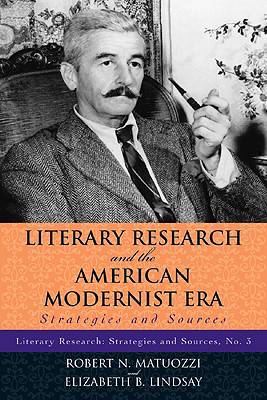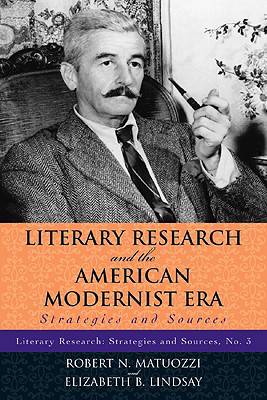
- Retrait gratuit dans votre magasin Club
- 7.000.000 titres dans notre catalogue
- Payer en toute sécurité
- Toujours un magasin près de chez vous
- Retrait gratuit dans votre magasin Club
- 7.000.0000 titres dans notre catalogue
- Payer en toute sécurité
- Toujours un magasin près de chez vous
Literary Research and the American Modernist Era
Strategies and Sources
Robert N Matuozzi, Elizabeth B Lindsay
67,45 €
+ 134 points
Description
Characterized by its move away from Romanticism and toward mundane, every day subjects, as well as incorporating such ideas as metanarrative, stream of consciousness, and disjointed timelines, the American Modernist Era was at its heyday during the years 1914-1949. It produced such great authors as Ernest Hemingway, William Faulkner, and F. Scott Fitzgerald, and memorable works like As I Lay Dying and The Great Gatsby. Literary Research and the American Modernist Era offers the scholar and researcher a clear introduction to the best contemporary library resources and practices for researching American modernist writing. Graduate students, advanced undergraduates, researchers, and scholars specializing in American modernist writing will improve their information skills and fluency, whether in the real or the virtual library. Even those lacking access to some of the resources described here can profit from this overview of literary research because it will help them frame questions, indicate where to go for answers, and demonstrate useful connections between many of the secondary scholarly sources. This guide offers a coherent account of how contemporary research skills and resources can complement one another in helping the scholar effectively deal with typical challenges they encounter in their work
Spécifications
Parties prenantes
- Auteur(s) :
- Editeur:
Contenu
- Nombre de pages :
- 186
- Langue:
- Anglais
- Collection :
- Tome:
- n° 3
Caractéristiques
- EAN:
- 9780810861169
- Date de parution :
- 01-09-08
- Format:
- Livre broché
- Format numérique:
- Trade paperback (VS)
- Dimensions :
- 150 mm x 221 mm
- Poids :
- 276 g

Les avis
Nous publions uniquement les avis qui respectent les conditions requises. Consultez nos conditions pour les avis.






